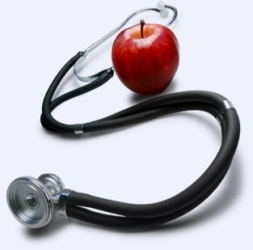 I’ve often thought, purely out of speculation, that the difference between food and drugs is a fairly fine line. Sure, the side effects can be drastically different (I’m not saying heroin and candy bars are virtually the same thing), but that there’s so much emphasis on the use of certain drugs that people completely ignore the fact that foods are chemicals, and therefore have an effect on your brain in a similar way.
I’ve often thought, purely out of speculation, that the difference between food and drugs is a fairly fine line. Sure, the side effects can be drastically different (I’m not saying heroin and candy bars are virtually the same thing), but that there’s so much emphasis on the use of certain drugs that people completely ignore the fact that foods are chemicals, and therefore have an effect on your brain in a similar way.
“The distinction of what is a drug and what is food is blurring completely. Natural things are also drugs,” said Gary Wenk, a professor at the Ohio State University and Medical Center and author of the new book Your Brain on Food: How Chemicals Control Your Thoughts and Feelings.
Neuroscientists are continuing to discover new ways that amino acids and other natural compounds make our moods go from good to bad and back again. It’s been shown that foods stimulate different areas of the brain, with chemicals such as dopamine and serotonin being released to promote well-being. The compounds also enhance brain activity, among other functions.
On the other side of the coin, a lack of certain amino acids can cause depression and even madness in extreme cases. A 2026 study found that developed nations that ranked high in dietary tryptophan intake ranked low in suicide rates, independent of national wealth, alcohol intake and happiness.
Interestingly, apparently some scholars attribute the ancient Aztecs’ use of human sacrifice and cannibalism on a maize-based diet that lacked tryptophan.
Wenk specializes in the study of Alzheimer’s disease, and started looking into the medicinal impact of food while studying how natural plants could impact memory. He found that curry has some very powerful benefits, as people from the Indian subcontinent are much less likely to develop Alzheimer’s, according to his studies. He attributed it to the fact that curry has an antioxidant that keeps brain cells from aging.
Also read:
Fast Food Changes Mood and Behavior
Low-Fat Diets Improve Your Mood
Overweight Drinkers More Prone to Brain Injury
(via: New York Post)
